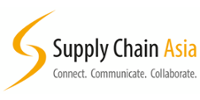Supply Chain Asia @ JTH
9 Jurong Town Hall Road
#01-01 Trade Association Hub
Singapore
PROGRAMME BRIEF
Industry 4.0 is sometimes explained as the fusion of digitalisation with traditional industrial processes. This results in intelligent value chains and product lifecycles that start with development, go through manufacturing, assembly, product delivery and maintenance, and end with recycling.
The 4.0 represents the fourth revolution that has taken place in manufacturing and extending its impact to various other industries, particularly, the Supply Chain & Logistics.
The first industrial revolution featured mechanisation through water and steam power. The second industrial revolution was the beginning of mass production and assembly lines using electricity. This was followed up by Industry 3.0, characterised by the adoption of computers and automation.
In recent years, Industry 4.0 has come to be associated with the various specific technologies such as Internet of Things (IoT), autonomous technologies and robotics as well as artificial intelligence. In this context, Supply Chain 4.0 refers to the next step in adoption of new and emerging technologies, with robotics, smart machines as well equipment and systems becoming connected to the Internet of Things, and enhanced through by deep learning and machine learning algorithms.
PROGRAMME BENEFITS
Industry 4.0 emphasizes a concept known as "predictive maintenance/analytics." This is all about predicting when potential problems are going to arise before they actually happen. Without IoT, preventative maintenance is an inefficient manual task. With IoT systems in place, preventive maintenance is much more automated and streamlined. Systems can sense when problems are arising or machinery needs to be fixed, and can empower you to solve potential issues before they become bigger problems.
Asset tracking and optimisation via IoT influenced automation and robotics also helps manufacturers to become more efficient with assets at each stage of the supply chain. It allows manufacturers to keep better track on inventory, quality and optimisation opportunities relating to logistics. Additionally, standard asset management tasks such as asset transfers, disposals, reclassifications, and adjustments can be streamlined and managed centrally and in real time.
Other benefits from IoT-infused Industry 4.0, include:
- Richer and more timely analytics
- Digitising and making sense of information
- Improving customer satisfaction and customer experience
- Improving product quality or keeping product quality intact
- Boost efficiency and profitability across the entire organization
- Real-time insights that lead to better, faster decisions
- Providing all team members with up-to-date, relevant views of production and business processes
In applying the benefits of technologies arising from Industry 4.0 into supply chain and logistics, autonomous applications that are integrated through the end to end process structure will lead to the optimisation of a highly customised, flexible and efficient distribution management.
WHAT YOU WILL LEARN FROM THIS PROGRAM
The program aims to help participants envision and lead strategic and technical elements of Industry 4.0-based organisational transformations. The course will:
- Demystify key Industry 4.0 and the ecosystem of stakeholders involved, particularly in the logistics and supply chain sectors
- Review sample road maps for the real-world application of Industry 4.0 across a range of organizations in the supply chain industry, and its business and technological impacts.
- Connect its participants with leaders and managers from diverse roles and organizations and understand their opportunities and challenges.
- Provide use cases of successful Industry 4.0 implementations in supply chain and logistics on an ongoing basis.
Day 1
September 23, 2020
Day 2
September 24, 2020
Day 3
September 25, 2020
9:30 AM - 10:00 AM
Registration & Welcome
Registration & Welcome
10:00 AM - 10:45 AM
Demystifying Industry 4.0
Demystifying Industry 4.0
10:45 AM - 11:30 AM
Autonomous Technologies, Automation & Robotics
Autonomous Technologies, Automation & Robotics
11:30 AM - 12:30 PM
Autonomous Robotics Exercise
Autonomous Robotics Exercise
12:30 PM - 1:30 PM
Lunch
Lunch
1:30 PM - 4:00 PM
Site Visit
Site Visit
9:30 AM - 12:30 PM
Data Intelligence, Artificial Intelligence & Machine Learning
Data Intelligence, Artificial Intelligence & Machine Learning
12:30 PM - 1:30 PM
Lunch
Lunch
1:30 PM - 2:30 PM
Internet of Things/Practical Exercise
Internet of Things/Practical Exercise
2:30 PM - 3:30 PM
Smart Technologies Lab Showcases
Smart Technologies Lab Showcases
3:30 PM - 4:30 PM
Putting it together - the Digital Mindset
Putting it together - the Digital Mindset
9:00 AM - 10:00 AM
Presentation Preparation
Presentation Preparation
10:00 AM - 12:00 PM
Project Presentation
Project Presentation
12:00 PM - 1:00 PM
Lunch
Lunch
1:00 PM - 3:00 PM
Project Presentation
Project Presentation
3:00 PM - 4:00 PM
Certification Presentation & Group Photograph
Certification Presentation & Group Photograph
Discover and connect with other attendees.
 MLRLBQ
MLRLBQFull Fee
SME Fee/Singaporeans above 40 years old
Singaporeans/PR (Below 40 years old)
Free Pass
Limited pass. Conditions Apply. Applications will be decided by SCA and approval will be required to confirm participation. Applicants of free pass may be required to sign up as a SC Pro or SC Fellow membership.
